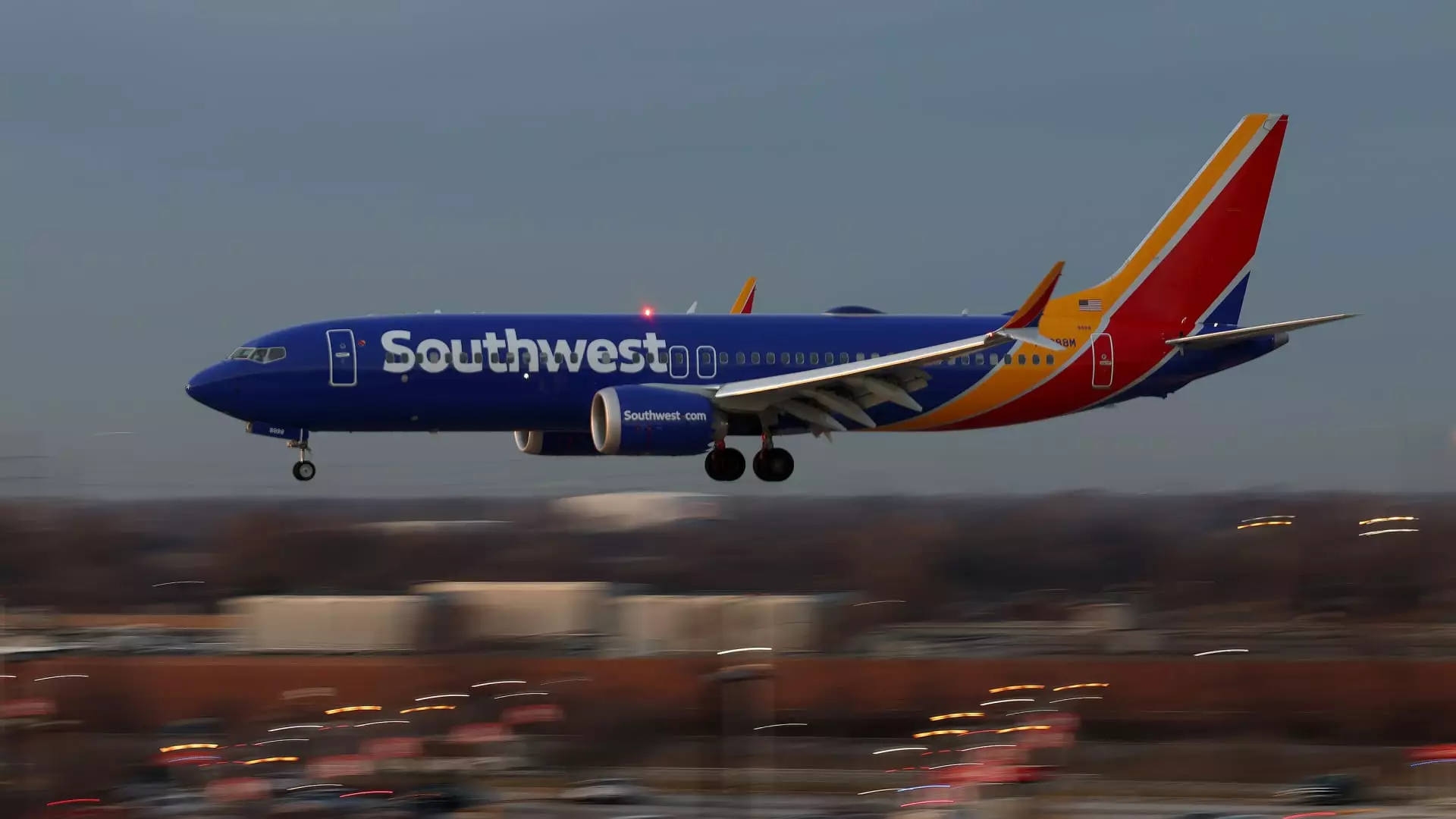Southwest Airlines, known for its emphasis on customer service and affordability, has made a series of policy shifts that have rattled the loyalties of its time-honored clientele. The decision to initiate charges for checked luggage—abandoning the cherished “two bags fly free” approach—is particularly significant. Not only does this change reflect a drastic departure from their foundational principles, but it also raises questions about the airline’s future as a budget-friendly option in an increasingly competitive market.
The essence of Southwest has always been about offering travelers more for less. Introduced in May, these new fees mark a slippery slope toward a no-frills and cost-cutting ethos that could alienate their core customer base. A $25 fee for a bag that was previously free may seem minor in isolation, yet when combined with other factors like expiring flight credits and assigned seating, it signals a troubling transformation toward practices that prioritize revenue over customers’ interests.
The ‘No-Frills’ Economy: A Misguided Direction?
As the airline introduces a basic economy fare that strips away many of the amenities for which it’s well-regarded, one can’t help but wonder if this is a knee-jerk reaction to market pressures. With the financial backing and influence of activist hedge fund Elliott Investment Management leading the charge, Southwest appears to be altering its course drastically. While a focus on profitability is undoubtedly important, abandoning customer loyalty in pursuit of margins is a deeply flawed strategy.
The introduction of a tiered service model not only clashes with their historical commitment to fair and transparent pricing but also risks diluting the brand’s identity. Customers seeking cheap fares expect value—something more than just a low price tag. By pushing the envelope on fees and creating a convoluted pricing structure, Southwest may unintentionally push loyal customers toward competing low-cost airlines, thus jeopardizing their market share.
Backlash from the Customer Base
Social media sentiment toward these changes has been overwhelmingly negative, as loyal fans express their frustrations over perceived corporate greed. Many past customers view the new fees as a betrayal. If the airline hopes to maintain strong relationships with travelers, it must prioritize transparency and trust, something that drastic policy shifts severely undermine.
Moreover, Fitch Ratings’ cautious outlook brings into question whether Southwest can successfully navigate these turbulent waters. With warnings that these changes could erode their competitive edge against network carriers, the stakes have never been higher. The airline’s brand has thrived on principles of accessibility and friendliness; as those qualities falter, so too does its hold on the market.
A Critical Crossroads
Southwest Airlines finds itself at a pivotal junction. The decision to embrace a more corporate-minded approach with newfound fees and restrictions directly contradicts the values that built their success. A fearsome balancing act looms ahead: can they enhance profitability without compromising the very essence that endeared them to millions? The answer to this question may determine the airline’s fate in a fierce and ever-evolving aviation landscape.
With the potential for miscalculated policies leading to significant brand erosion, one clear message emerges: Southwest must tread cautiously. While the pressures of profit are undeniable, a return to fundamental principles may be the only way to navigate these promising yet perilous skies.

